DAVOS: Saudi Vision 2030 is an inspiration for Syria, which needs to become a place of peace and development, Syria’s Foreign Minister Asaad Hassan Al-Shaibani told the World Economic Forum on Wednesday.
“Where do we see inspiration for the new Syria? We have the Vision 2030 of Saudi Arabia,” Al-Shaibani said during a conversation with former UK prime minister Tony Blair at the annual meeting of the World Economic Forum in Davos.
“We need Syria to be a place of peace, to be a place of development, a place free of war.”
Having become foreign minister following the overthrow of the Bashar Assad regime on Dec. 8 last year, Al-Shaibani said the lifting of economic sanctions imposed on the former regime would be “key” to establishing stability in his country.
“Removing economic sanctions is the key for the stability of Syria,” he said, adding that they were imposed for the benefit of Syrians, but are now “against the Syrian people.”
“The reason for these sanctions is now in Moscow,” he said, referring to Assad, who fled to the Russian capital. A new government led by the victorious Hayat Tahrir Al-Sham has since taken Assad’s place, but still does not have full control over the nation’s territory.
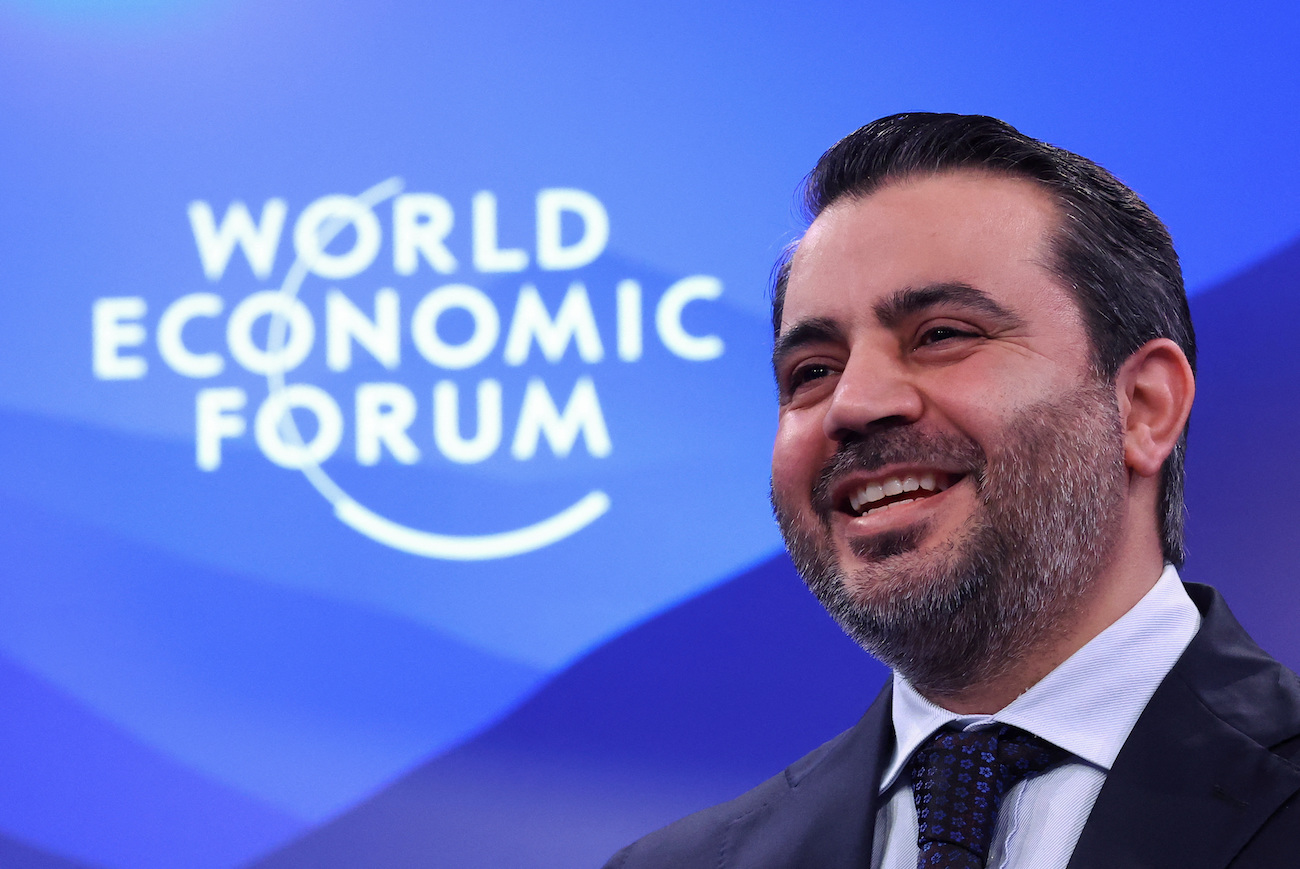
Syria’s Foreign Minister Asaad Hassan Al-Shaibani looks on during the 55th annual WEF meeting in Davos, Switzerland, January 22, 2025. (Reuters)
“The Syrian people shouldn’t be punished” now that the deposed ruler was no longer in power, said Al-Shaibani. “We inherited a collapsed state from the Assad regime, there is no economic system,” he added, saying he hoped “the economy in the future will be open.”
Al-Shaibani said a committee had been formed to study economic conditions and infrastructure in Syria and would focus on privatization efforts, including of oil, cotton, and factories, while exploring “public-private partnerships to encourage investment into airports, railways and roads.”
Al-Shaibani also confirmed that the country will open its economy to foreign investments, adding that Damascus was working on partnerships with Gulf states in the energy sector.
The new Syrian government has been especially keen to reach out to the Gulf states to reestablish ties, which have long suffered as a result of the Assad regime’s support for the narcotics trade.
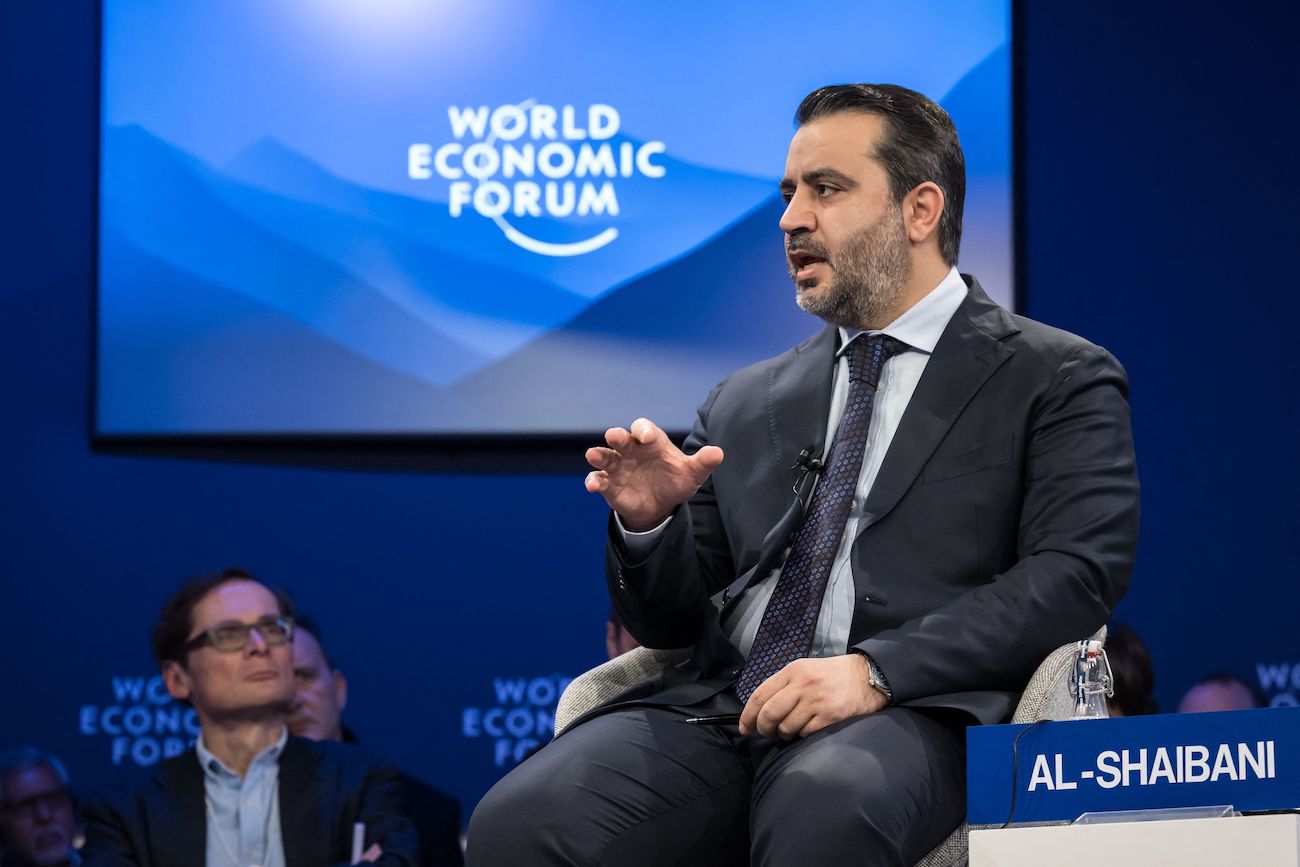
Syria’s Foreign Minister Asaad Al-Shaibani speaks at a session during the WEF annual meeting in Davos on January 22, 2025. (AFP)
“We chose to visit the Gulf countries, because we wanted to fix the relations with these countries, where Assad had made a lot of problems for them,” Al-Shaibani said.
“(The Assad regime) used harsh language against them, exported Captagon there, these are important countries to the region. But Syria should also take its role in the region, and they can help us with that.”
Al-Shaibaani was not the only Middle Eastern voice at Davos on Wednesday. Iran’s vice-president for strategic affairs, Javad Zarif, also shared his reflections on the regional situation in the wake of Israel’s ceasefires with Hamas and Hezbollah.
Speaking to CNN’s Fareed Zakaria, Zarif said: “The resistance will stay as long as the occupation stays, as long as repression stays. Resistance to Israel, to Israeli occupation, to apartheid, to genocide, existed before the Iranian revolution.”
Zarif said Hamas still exists in Gaza and that Israeli Prime Minister Benjamin Netanyahu did not achieve his goal of destroying the Palestinian militant group during the 15-month war in the enclave.
“Hamas is still there. Israel had to come to a temporary ceasefire. I hope it will be permanent, for the sake of 50,000 people who were massacred by Israel, so that there won’t be another 50,000, but resistance is not dead,” said Zarif.
“I can tell you that the wish for the resistance to go away has been based on a misrepresentation, a framing by Israel, that this is not an Israeli-Palestinian issue, but an Israeli-Iranian issue.”
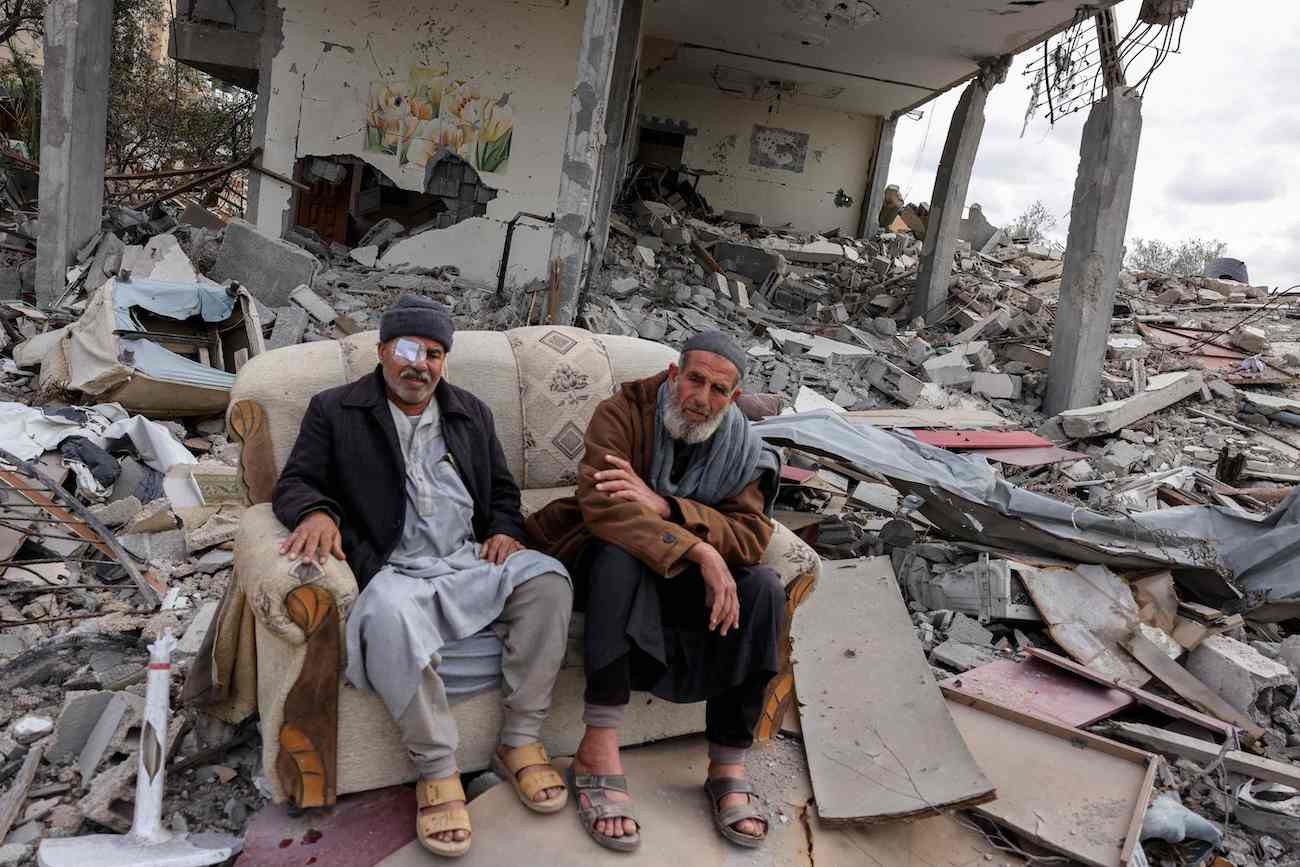
Palestinians sit in a ruined neighbourhood of Gaza’s southern city of Rafah, on January 22, 2025. (AFP)
Zarif said the decades-old conflict can only be ended by resolving the Palestinian question.
“If you want to resolve the problem of Palestine, you should not look at Iran,” he said. “You should look at the Palestinian issue.
“As long as the Palestinian issue is there, the struggle will be there, the resistance will be there, and there will be support from the international community, including from Arab allies of the US.”
Speaking about US President Donald Trump, Zarif said he hoped “a ‘Trump 2’ will be more serious, more focused, more realistic” when dealing with Iran.
In 2018, during his first term, Trump withdrew from the 2015 nuclear deal negotiated by his predecessor Barack Obama, and re-imposed sanctions on Tehran as part of his “maximum pressure” policy against the regime.
Tehran responded by breaching the deal in several ways, including by accelerating its uranium enrichment program.
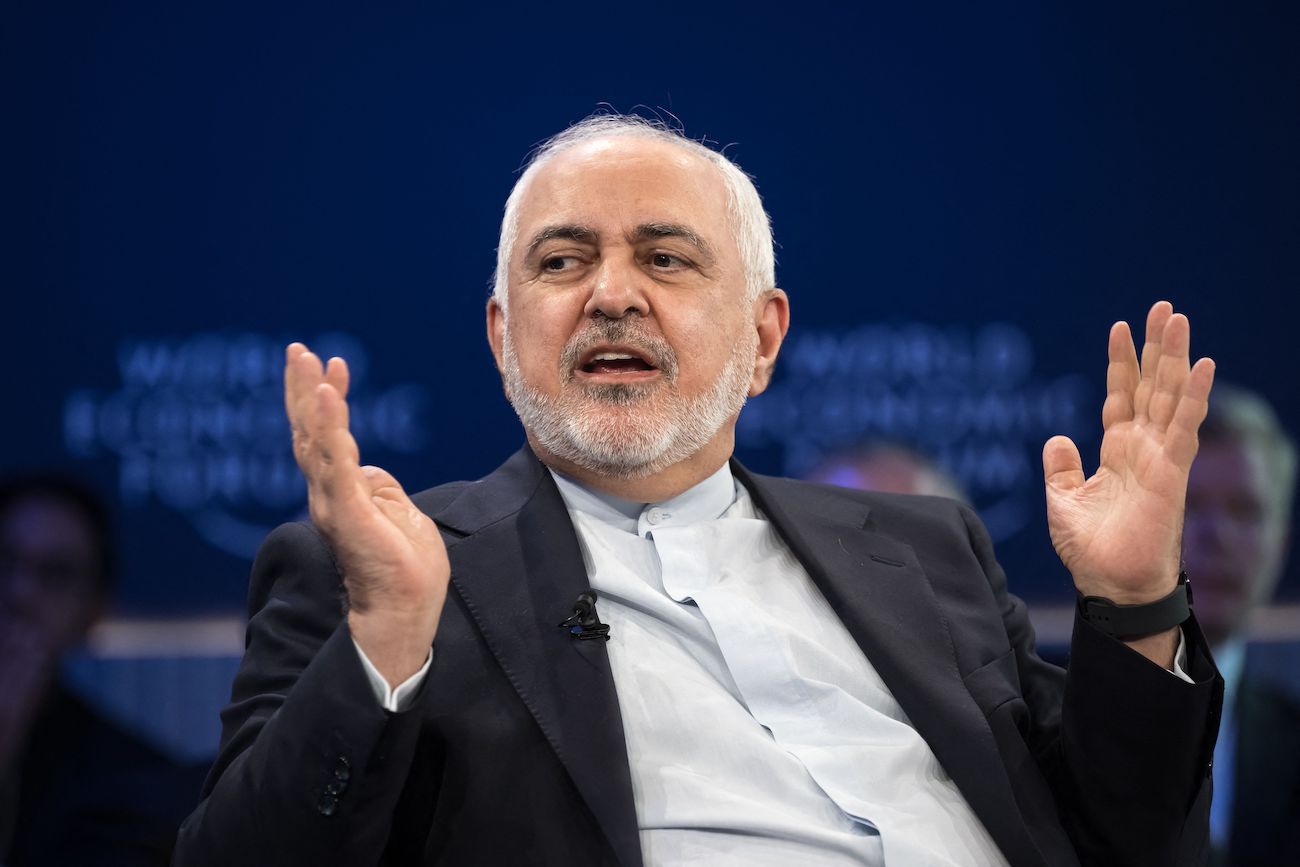
Iran’s Vice-President for strategic affairs Mohammad Javad Zarif gestures as he addresses the audience during the WEF annual meeting in Davos on January 22, 2025. (AFP)
Trump has vowed to return to the policy he pursued in his previous term that sought to use economic pressure to force Iran to negotiate a deal on its nuclear program, ballistic missiles, and regional activities, including its support for proxy militias.
Zarif added that Iran has good relations with Saudi Arabia and the UAE and that he has proposed a new arrangement in the region that is based on amity.
“I have proposed in an article I recently wrote in The Economist, after my Foreign Affairs article, that we should have a new arrangement in this region,” he said.
“I call it MWADA: Muslim, West Asia Dialog Association. In Arabic, ‘mwada’ means ‘amity,’ and the title in The Economist was ‘Amity instead of enmity.’ Let’s do that.”
In his own address earlier in the day, UN Secretary-General Antonio Guterres lamented the recent rash of conflicts in the Middle East.
“We see a multiplication of conflicts, some of which are leading to a reshaping of different regions of the world — not least the Middle East,” he told the annual meeting.
He did, however, highlight recent progress, including the ceasefire deal between Israel and Hamas, which has already resulted in the exchange of several prisoners and hostages.
“There is, finally, a measure of hope when the ceasefire and hostage release deal in Gaza takes place — and we are working to surge up desperately needed humanitarian aid,” Guterres said.
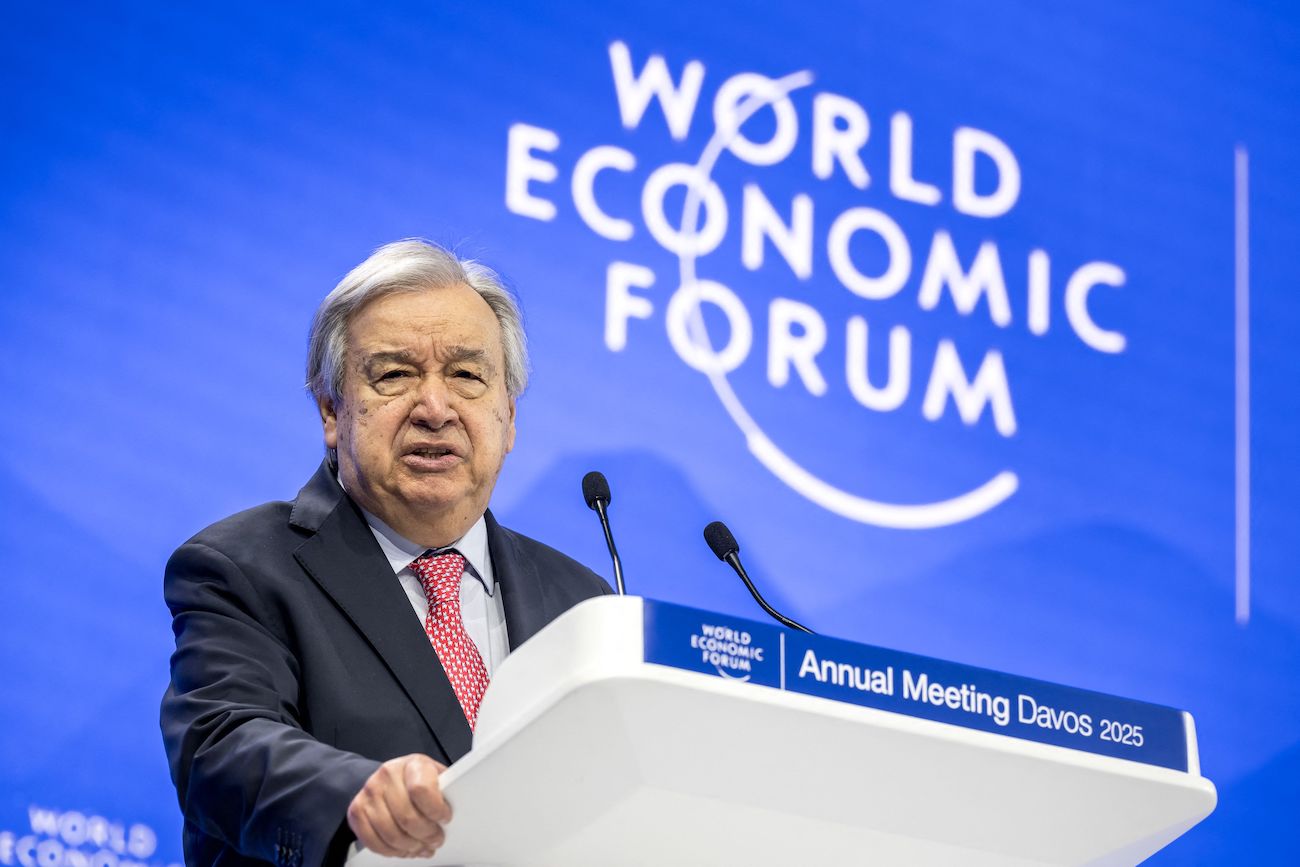
UN Secretary-General Antonio Guterres addresses a speech during the WEF annual meeting in Davos on January 22, 2025. (AFP)
He also lauded the recent ceasefire between Israel and the Iran-backed Hezbollah militia in Lebanon and the election of a new Lebanese president and prime minister, potentially ending years of political deadlock.
“I was also just in Lebanon where a cessation of hostilities is holding, and a new government is taking shape after two years of stalemate,” he said.
In relation to Syria, Guterres said there was still a danger of further disorder unless the victorious HTS formed an inclusive administration that could work with the international community.
“We still have a strong risk of fragmentation and of extremism in at least parts of the Syrian territory,” he said.
“It is in the interest of us all to engage to make things move in the direction of an inclusive form of governance and I think some gesture must be made in relation to the sanctions.”



























